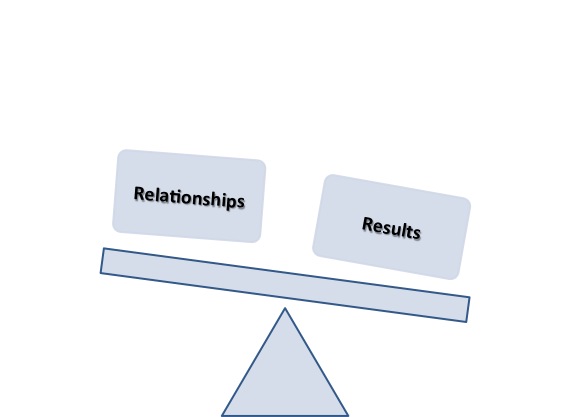Submitted by Sal Silvester on July 15, 2013
 One of the challenges senior leaders face is that for the first time in their career they may find themselves on multiple teams. For example, they lead their own team of managers who run the function of an organization such as Sales or Engineering. And, they may also belong to a leadership team comprised of fellow hard-charging peers from other functions of the organization that report up to a General Manager or CEO.
One of the challenges senior leaders face is that for the first time in their career they may find themselves on multiple teams. For example, they lead their own team of managers who run the function of an organization such as Sales or Engineering. And, they may also belong to a leadership team comprised of fellow hard-charging peers from other functions of the organization that report up to a General Manager or CEO.
Submitted by Sal Silvester on July 8, 2013
 In my last post, I introduced the idea that developing a deep level of interpersonal agility is critical to being successful as a senior leader. That's partially because as senior leaders rise to higher levels in their organization, they are less likely to hear the truth.
In my last post, I introduced the idea that developing a deep level of interpersonal agility is critical to being successful as a senior leader. That's partially because as senior leaders rise to higher levels in their organization, they are less likely to hear the truth.
Submitted by Sal Silvester on June 24, 2013
As leaders rise to higher levels within an organization, they are required to navigate increasingly complex and chaotic situations. There are hand-offs and trade-offs with stakeholders and constituents. There are executive leaders to please and junior leaders to lead. Fellow peers with competing agendas from other functions such as Sales, Engineering, and Finance, vie for the same set of limited resources. And, decisions become more and more consequential to the organization.
Submitted by Sal Silvester on May 14, 2013
Have you ever wondered why your leadership team struggles so much? Why there is unexplained tension and unspoken expectations?
Leadership Teams are straddled with unique challenges that other teams don't normally face. For example, most members of a Leadership Team often "own" a function of the organization (e.g., Marketing, Engineering, Sales), are rewarded based on the success of that function, and then asked to be part of a team of peers who battle for the same set of resources.
Submitted by Sal Silvester on May 6, 2013
In last week's Ignite Leadership Launch training workshop here in Colorado, a curious participant asked, "How do I deal with an employee who isn't changing even after I give her feedback?" An insightful response came from another participant that I thought would be helpful to share. Here's a summary of what she had to say…
Submitted by Sal Silvester on April 6, 2013
Have you ever worked for a leader who was overly focused on results? 
How about the leader who placed too much emphasis on relationships?
Submitted by Sal Silvester on April 1, 2013
In my last few posts, I have been exploring the behavioral best practices of leaders who Craft a Vision and Champion Execution.
As I mentioned in both of those posts, our personality styles impact how we lead. Sometimes our natural preferences help in a specific area of leadership. Other times those same natural tendencies hinder our leadership effectiveness.
Submitted by Sal Silvester on March 25, 2013
As I mentioned in my post last week, one of the interesting observations I've noticed in my leadership development programs here in Denver and Boulder, Colorado is that some leaders are naturally inclined to be more effective in different aspects of leadership. In other words, our personality styles can help or hinder us in various aspects of leadership. The post last week identified the behavioral best practices of leaders who excel at Championing Execution.
Submitted by Sal Silvester on March 12, 2013
I had an amazing visit with a senior executive last week to kick-off a 7-month leadership development program here in Denver, Colorado. Our conversation focused mostly on the concept of execution.
When people speak of leadership, they often describe visionary and charismatic people. They rarely speak about the need for leaders to be involved in the execution of a vision. But without a focus on execution, a leader's vision often goes unrealized and organizational change efforts fail. Here are a few key principles that guide this executive.
Submitted by Sal Silvester on March 3, 2013
Have you ever noticed that people laugh louder when senior leaders make jokes? Or that their ideas and thoughts are taken more seriously?
Pages